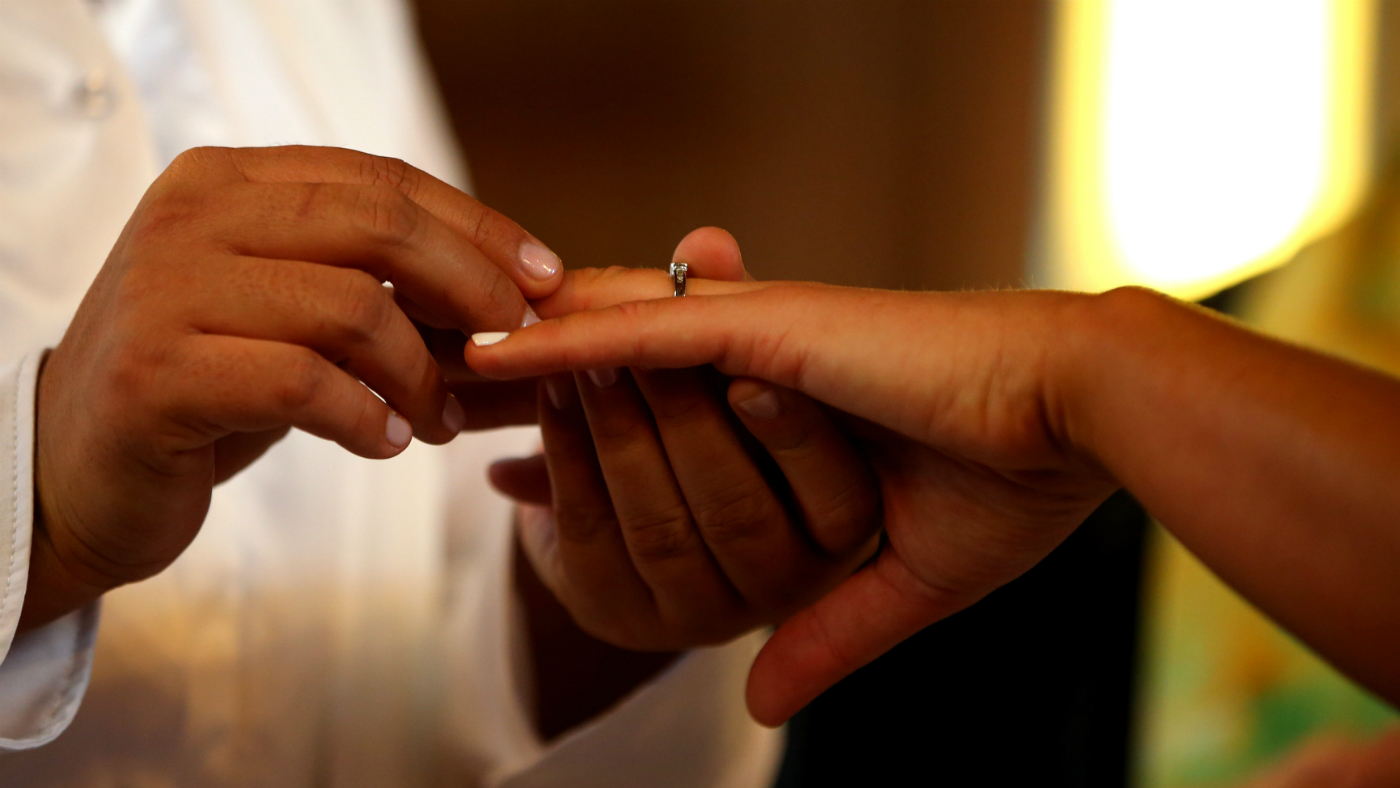What is the ‘happy marriage’ gene?
New study finds link between marital bliss and genetic variation associated with social bonding

A free daily email with the biggest news stories of the day – and the best features from TheWeek.com
You are now subscribed
Your newsletter sign-up was successful
Living happily ever after with your true love may be written not in the stars but in your DNA, according to a new study that identifies a gene linked to sustaining a successful relationship.
Researchers at Yale University examined the genetic profile of 178 married couples using saliva samples, and also quizzed each volunteer on their satisfaction and feelings of security in their marriage.
The scientists found that people in self-reported stable marriages were more likely to possess the GG genotype, a genetic variation that affects oxytocin, “a hormone that plays a role in social bonding”, says The Daily Telegraph.
The Week
Escape your echo chamber. Get the facts behind the news, plus analysis from multiple perspectives.

Sign up for The Week's Free Newsletters
From our morning news briefing to a weekly Good News Newsletter, get the best of The Week delivered directly to your inbox.
From our morning news briefing to a weekly Good News Newsletter, get the best of The Week delivered directly to your inbox.
The genetic variant is associated with “greater empathy, sociability, and emotional stability”, say the authors of the study.
They found that individuals who either had the GG genotype or had a spouse with the variant reported greater marital satisfaction than those in relationships where neither partner possessed it.
The scientists estimate that about 4% of the variation in marital satisfaction can be attributed to the presence of the GG genotype - a small but nonetheless valuable clue about how and why some relationships endure.
“This study shows that how we feel in our close relationships is influenced by more than just our shared experiences with our partners over time,” said Professor Joan Monin, who led the study, published in scientific journal PLOS One.
A free daily email with the biggest news stories of the day – and the best features from TheWeek.com
“In marriage, people are also influenced by their own and their partner’s genetic predispositions.”
The findings “mark the first link between the GG genotype and marital success”, and the Yale team now plan to investigate its effects in a larger group of people, The Independent reports.
Prior research has also linked a happy marriage to better health and longer life. A study published in November in the journal Health Psychology found that, adjusting for other factors, people who described their marriage as “happy” or “pretty happy” had a significantly lower mortality rate than those in unhappy marriages over a 32-year period.
And a 2017 study outlined in the Journal of Epidemiology and Community Health found that men who reported an increasing level of satisfaction with their marriages over the six-year study period had lower cholesterol and a healthier weight than those whose satisfaction remained the same.
However, getting hitched can go both ways - the same study found that couples in deteriorating marriages “were more likely to develop high blood pressure later in life”.
-
 Is Andrew’s arrest the end for the monarchy?
Is Andrew’s arrest the end for the monarchy?Today's Big Question The King has distanced the Royal Family from his disgraced brother but a ‘fit of revolutionary disgust’ could still wipe them out
-
 Quiz of The Week: 14 – 20 February
Quiz of The Week: 14 – 20 FebruaryQuiz Have you been paying attention to The Week’s news?
-
 The Week Unwrapped: Do the Freemasons have too much sway in the police force?
The Week Unwrapped: Do the Freemasons have too much sway in the police force?Podcast Plus, what does the growing popularity of prediction markets mean for the future? And why are UK film and TV workers struggling?
-
 Home Office worker accused of spiking mistress’s drink with abortion drug
Home Office worker accused of spiking mistress’s drink with abortion drugSpeed Read Darren Burke had failed to convince his girlfriend to terminate pregnancy
-
 In hock to Moscow: exploring Germany’s woeful energy policy
In hock to Moscow: exploring Germany’s woeful energy policySpeed Read Don’t expect Berlin to wean itself off Russian gas any time soon
-
 Were Covid restrictions dropped too soon?
Were Covid restrictions dropped too soon?Speed Read ‘Living with Covid’ is already proving problematic – just look at the travel chaos this week
-
 Inclusive Britain: a new strategy for tackling racism in the UK
Inclusive Britain: a new strategy for tackling racism in the UKSpeed Read Government has revealed action plan setting out 74 steps that ministers will take
-
 Sandy Hook families vs. Remington: a small victory over the gunmakers
Sandy Hook families vs. Remington: a small victory over the gunmakersSpeed Read Last week the families settled a lawsuit for $73m against the manufacturer
-
 Farmers vs. walkers: the battle over ‘Britain’s green and pleasant land’
Farmers vs. walkers: the battle over ‘Britain’s green and pleasant land’Speed Read Updated Countryside Code tells farmers: ‘be nice, say hello, share the space’
-
 Motherhood: why are we putting it off?
Motherhood: why are we putting it off?Speed Read Stats show around 50% of women in England and Wales now don’t have children by 30
-
 Anti-Semitism in America: a case of double standards?
Anti-Semitism in America: a case of double standards?Speed Read Officials were strikingly reluctant to link Texas synagogue attack to anti-Semitism